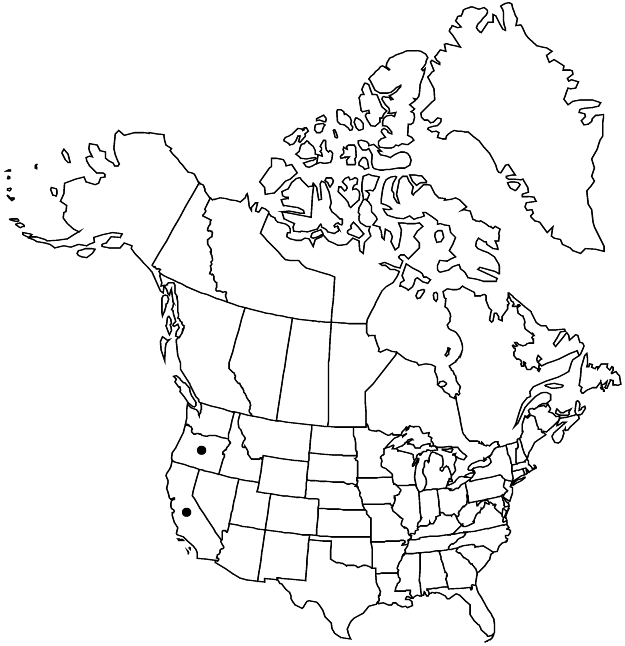Eriogonum umbellatum var. dumosum
Harvard Pap. Bot. 9: 202. 2004.
Shrubs, round to erect, 3–5 × 3–10 dm. Aerial flowering stems erect, 0.8–2(–2.5) dm, tomentose to floccose, without one or more leaflike bracts ca. midlength. Leaves in loose rosettes; blade elliptic to ovate, 1–2.5(–3) × 0.5–1.2 cm, densely tomentose abaxially, thinly floccose or glabrous adaxially, margins plane. Inflorescences umbellate; branches 2–6(–10) cm, tomentose to floccose, without a whorl of bracts ca. midlength; involucral tubes 2–3(–5) mm, lobes 2.5–4 mm. Flowers 5–9 mm; perianth bright yellow.
Phenology: Flowering Jun–Sep.
Habitat: Sandy to gravelly flats and slopes, mixed grassland communities, oak and conifer woodlands
Elevation: (300-)600-1200 m
Discussion
Variety dumosum has been called var. polyanthum in the recent California literature. It is known only from widely scattered locations, where it is localized and typically infrequent, in Amador, Placer, Plumas, Shasta, and Siskiyou counties in California, and just inside Oregon (in Jackson County). It approaches var. nevadense in size but differs in having much more densely tomentose leaf blades. It can be confused also with var. modocense, which is much smaller and nearly always to the east or north of var. dumosum. Unlike the related var. ahartii, which is always on serpentine soils, var. dumosum is only occasionally found on that substrate. The American Valley sulphur flower is a largish shrub that is ideal for the garden and may well prove popular if successfully cultivated.
Selected References
None.
